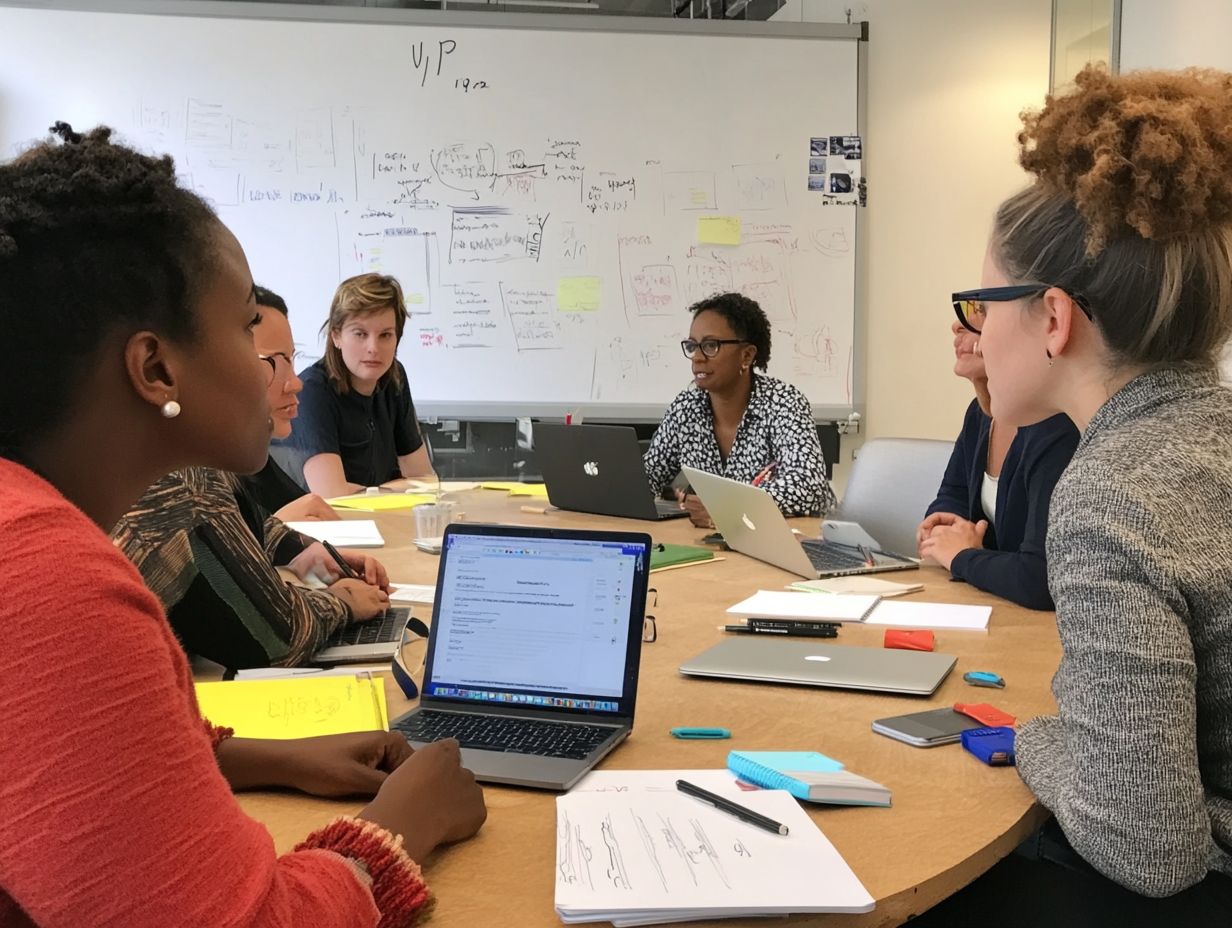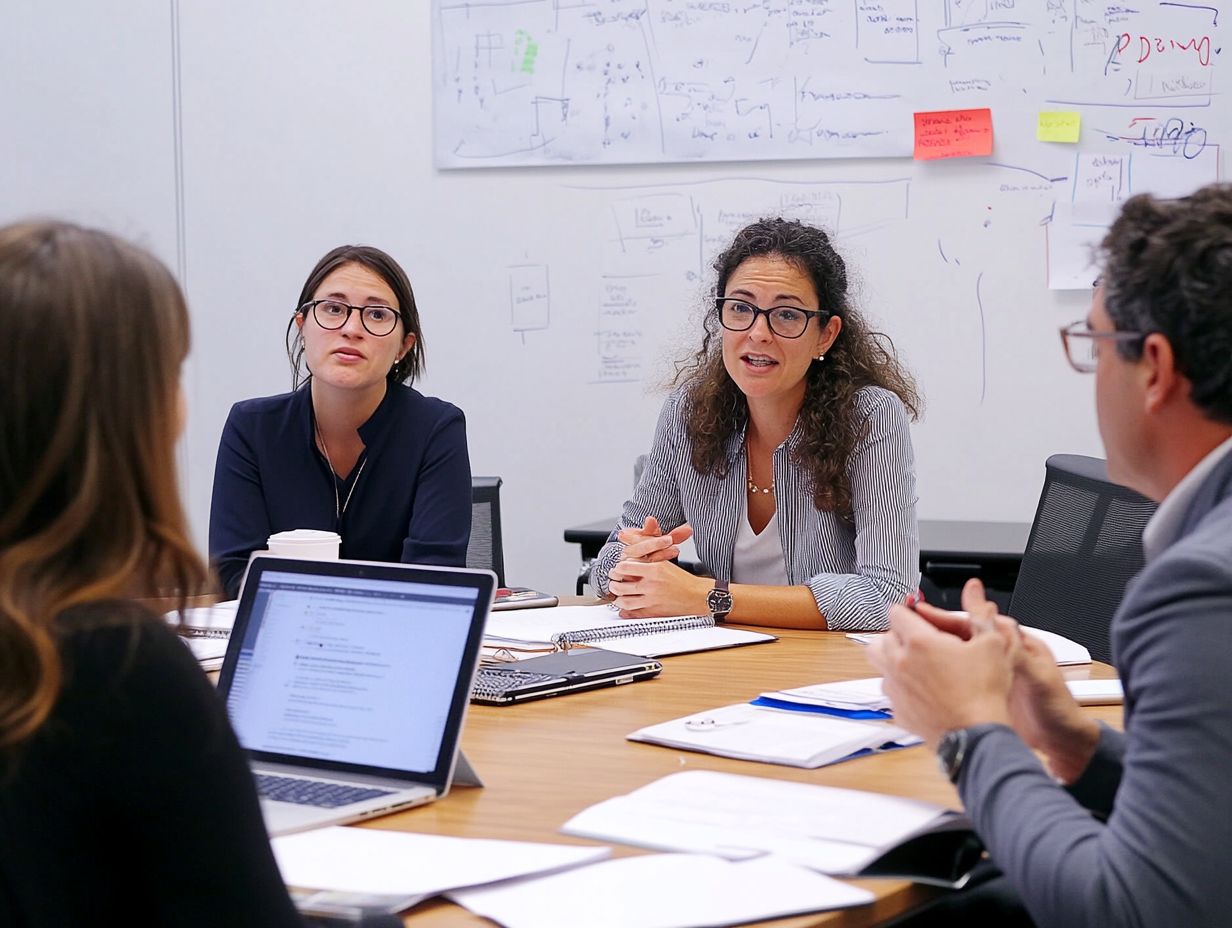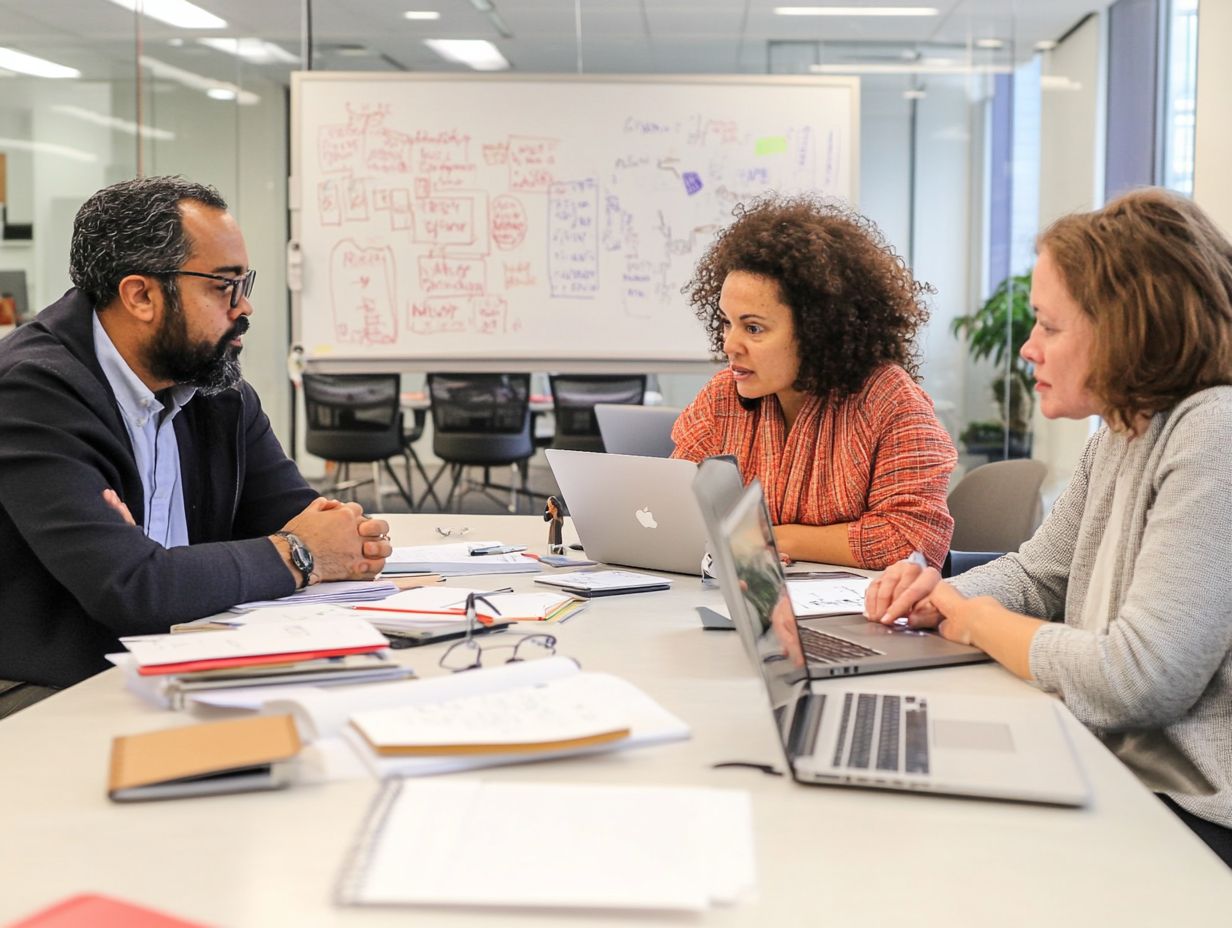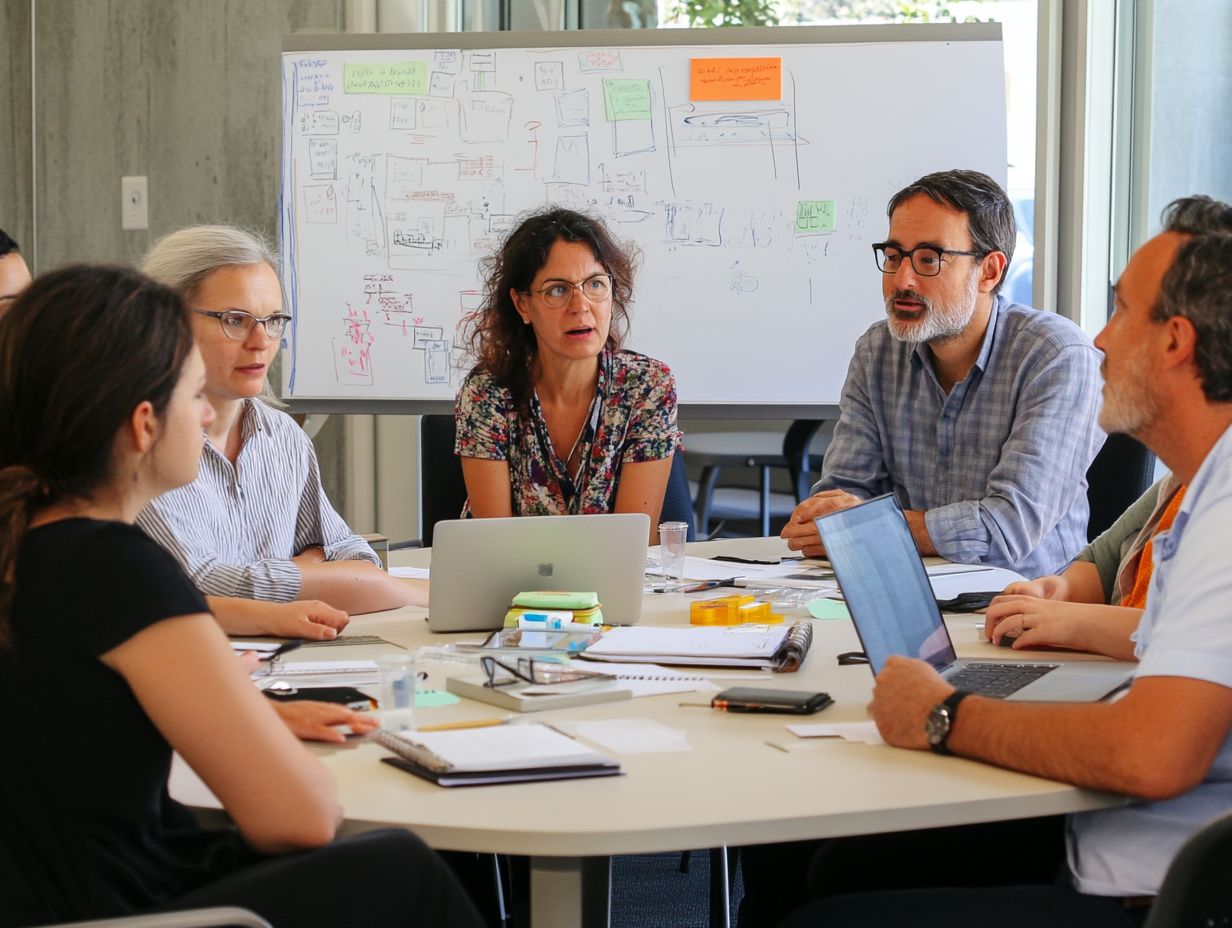Critical thinking is a fundamental skill that enables individuals to effectively navigate the complexities of everyday life. This article examines the definition and significance of critical thinking, highlighting its key components: analysis, evaluation, and inference.
Furthermore, it addresses prevalent barriers that hinder the ability to think critically and offers practical strategies to enhance these skills. Readers will discover how to apply critical thinking in real-life situations, equipping themselves with the necessary tools to make informed decisions and solve problems more effectively.
Understanding Critical Thinking

Understanding critical thinking is essential in today’s rapidly evolving landscape, where the capacity to analyze information, evaluate situations, and make informed decisions is increasingly vital.
Critical thinking encompasses a diverse set of cognitive skills, including reasoning, evaluation, analytical abilities, and creativity. It enables individuals to approach problems in a systematic manner, employing logical reasoning and effective communication to express their ideas clearly.
This intellectual process not only assists in identifying problems but also promotes sound decision-making and reflection, ultimately contributing to personal and academic development.
Definition and Importance
The concept of critical thinking encompasses the ability to think clearly and rationally, understanding the logical connections between ideas while effectively evaluating arguments and evidence.
This skill is vital across various domains, particularly in education, where students are encouraged to engage in critical analysis of information rather than relying solely on rote memorization.
In professional settings, individuals who utilize critical thinking exhibit enhanced problem-solving capabilities and make informed judgments, which can result in more effective decision-making.
Cultivating cognitive skills such as reasoning and analysis enables individuals to navigate complex situations, assess risks, and draw well-founded conclusions. By actively engaging in critical thinking, one not only elevates their intellectual standards but also develops an appreciation for diverse perspectives, fostering more informed and balanced viewpoints in discussions.
Key Elements of Critical Thinking
The fundamental components of critical thinking encompass analysis, evaluation, and inference. Together, these elements enhance cognitive skills and foster effective problem-solving capabilities.
Analysis, Evaluation, and Inference
Analysis, evaluation, and inference are fundamental components of the cognitive process, enableing individuals to deconstruct complex information, assess its validity, and formulate logical conclusions.
These elements are essential in everyday decision-making and problem-solving. For instance, when confronted with a business challenge, a manager may analyze various data trends to gain insights into market behavior. This analysis is then followed by an evaluation of the effectiveness of different strategies, weighing them against potential outcomes.
Evaluating customer feedback, for example, necessitates a discerning judgment to distinguish between anecdotal evidence and significant trends. Inference enables the manager to anticipate future market shifts based on current patterns, thereby facilitating more informed and strategic decision-making.
This systematic approach not only fortifies logical reasoning but also enhances overall critical thinking skills, equipping individuals to navigate complex situations with greater clarity and confidence.
Barriers to Critical Thinking

Identifying and addressing barriers to critical thinking is crucial for cultivating a mindset that supports learning and growth.
These obstacles can impede cognitive flexibility and hinder effective problem-solving.
Identifying and Overcoming Obstacles
Identifying and overcoming obstacles in critical thinking necessitate self-assessment and reflection, enabling individuals to recognize personal biases and adopt a more open-minded approach.
These obstacles often present themselves as preconceived notions or emotional reactions that can cloud judgment. Through engaging in thoughtful introspection, individuals can begin to dismantle these barriers, thereby gaining clarity regarding their influence on decision-making processes.
Employing techniques such as journaling thoughts, discussing various viewpoints with peers, and seeking constructive feedback can significantly enhance this reflective process.
Allocating dedicated time to evaluate past decisions fosters a deeper understanding of patterns in thinking and behavior.
Ultimately, cultivating a habit of questioning assumptions facilitates the transformation of critical thinking from an occasional endeavor into a consistent practice.
Ways to Improve Critical Thinking Skills
Enhancing critical thinking skills can be accomplished through a range of practical strategies and exercises that promote inquiry, skepticism, and collaborative learning.
Practical Strategies and Exercises
Practical strategies and exercises, such as problem-based learning and the implementation of questioning techniques, can significantly enhance critical thinking capabilities.
These methods encourage individuals to engage deeply with complex problems, thereby fostering an environment conducive to the development of analytical skills. For instance, the use of open-ended questions prompts learners to explore various perspectives and critically assess the validity of different arguments.
Additionally, employing metacognitive strategies, such as reflective journals, enables students to analyze their thought processes and identify areas for improvement. Techniques like the Socratic method not only stimulate discussion but also challenge assumptions, thereby promoting an active learning atmosphere.
Overall, these approaches not only strengthen critical thinking but also create a more dynamic educational experience that emphasizes assessment and adaptability.
Applying Critical Thinking in Daily Life

The application of critical thinking in everyday life encompasses the use of cognitive skills and reflective practices to effectively navigate various scenarios and challenges.
Real-Life Examples and Scenarios
Real-life examples and scenarios illustrate the practical application of critical thinking, highlighting how the identification of problems and evidence-based reasoning lead to well-considered choices.
For instance, consider a student assigned to write a research paper. Instead of merely summarizing sources, the student critically analyzes the credibility and relevance of the information, ultimately developing a nuanced argument.
In a professional setting, a manager evaluating team performance encourages employees to express their concerns and presents data to support their feedback, thereby promoting a culture of open dialogue and continuous improvement.
Additionally, a parent faced with the decision of enrolling their child in a specific school conducts thorough research on various educational philosophies, carefully considering the options in relation to the child’s learning style to ensure an appropriate match.
These varied instances emphasize the fundamental role that critical thinking plays in effectively navigating everyday challenges and achieving favorable outcomes.
Frequently Asked Questions
What are the benefits of developing critical thinking skills?
Developing critical thinking skills allows individuals to analyze, evaluate and make informed decisions. It also improves problem-solving abilities and fosters creativity and innovation.
How can I develop critical thinking skills?

You can develop critical thinking skills through activities that promote active thinking, such as questioning assumptions, analyzing arguments and reflecting on your own thought process.
Why is critical thinking important in the workplace?
Critical thinking is an essential skill in the workplace as it helps individuals make sound decisions, solve complex problems, and communicate effectively. It also leads to more efficient and effective workflows and decision-making processes.
How can critical thinking skills benefit my personal life?
Developing critical thinking skills can improve your personal life by helping you make better decisions, solve conflicts, and understand different perspectives. It also promotes self-reflection and personal growth.
What are some common misconceptions about critical thinking?
Some common misconceptions about critical thinking include thinking critically means being negative or argumentative, that it is only useful for academic or intellectual pursuits, and that it is a skill that cannot be taught.
Can critical thinking skills be improved?
Yes, critical thinking skills can be improved through practice and intentional effort. By engaging in activities that require critical thinking, individuals can strengthen their skills and become more effective critical thinkers.




